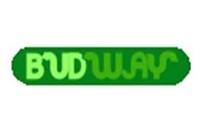Monique M. Couture
Partner
Trademark Agent
Article
4
Looking for more insights? This resource is part of a five-installment series. Click here to read our Canadian trademark law year in review for 2021.
Subway IP LLC v. Budway, Cannabis & Wellness Store, 2021 FC 583
This decision stands as a warning for those seeking to deliberately draw on famous marks to create a brand.
In 2020, Subway learned that the respondent was using the BUDWAY mark at a cannabis retail store in Vancouver, BC, that was described as having a somewhat down-market exterior appearance. Subway also discovered that Budway has a mascot named BUDZ, which is a submarine sandwich filled with cannabis leaves with apparently bloodshot and half-opened eyes. Their mark is shown below:

Subway brought an uncontested application for trademark infringement, passing off, and depreciation of goodwill, and was successful on all three grounds.
Subway relied on five trademark registrations, including the marks shown below, which, together, covered restaurant services and a variety of food-related goods, including sandwiches, cookies, snacks and drinks.

On the issue of infringement, the Court found that all factors pointed to a likelihood of confusion. In considering the nature of the goods, services and business, the Court noted that, while none of Subway's registrations were for cannabis products, its registrations covered baked goods and baked goods were being offered Budway. The Court also acknowledged that a registration for "cookies" does not limit the content of those cookies, e.g., they could contain cannabis.
As a result, the Court found there was infringement and noted "the context makes it perfectly clear that the respondents have adopted their mark by deliberately drawing on the famous mark of the applicant." The Court also noted that the overlap in the goods and services, made this decision different from Toys "R" Us (Canada) Ltd. v. Herbs "R" Us Wellness Society, 2020 FC 682, where the sales of toys and cannabis products were found to be fundamentally dissimilar, such that confusion was unlikely.
Not surprisingly, Court found that Subway had established its claim for passing off. And, in granting the claim for depreciation of goodwill, the Court affirmed that:
For purposes of section 22, the use does not need to be of the trademark exactly as registered. It only needs to be "sufficiently similar [...] to evoke in a relevant universe of consumers a mental association of the two marks that is likely to depreciate the value of the goodwill attaching to the [registered] mark": Veuve Clicquot at para 38. The impugned trademark must be "so closely akin" to the registered mark to be understood as the registered mark: Venngo Inc v Concierge Connection Inc (Perkopolis), 2017 FCA 96 at paras 13, 80.
On the basis of the above, the Court concluded that Subway was entitled to an injunction prohibiting the respondents from using the BUDWAY mark, awarded compensatory damages in the amount of $15,000, costs in the amount of $25,000.
If you would like to discuss this article further or have any specific questions about it, please contact a member of our Trademarks, Brands & Designs Group.
The authors would like to thank Melissa Cheng, Richard Du, YooJung Jung, Luke Robert and Chloe Ilagan.
NOT LEGAL ADVICE. Information made available on this website in any form is for information purposes only. It is not, and should not be taken as, legal advice. You should not rely on, or take or fail to take any action based upon this information. Never disregard professional legal advice or delay in seeking legal advice because of something you have read on this website. Gowling WLG professionals will be pleased to discuss resolutions to specific legal concerns you may have.